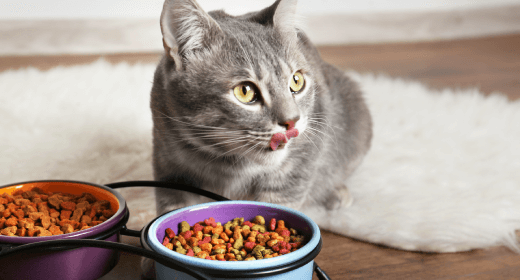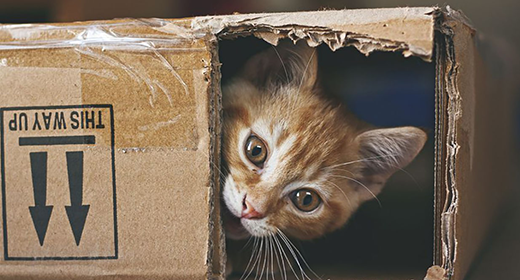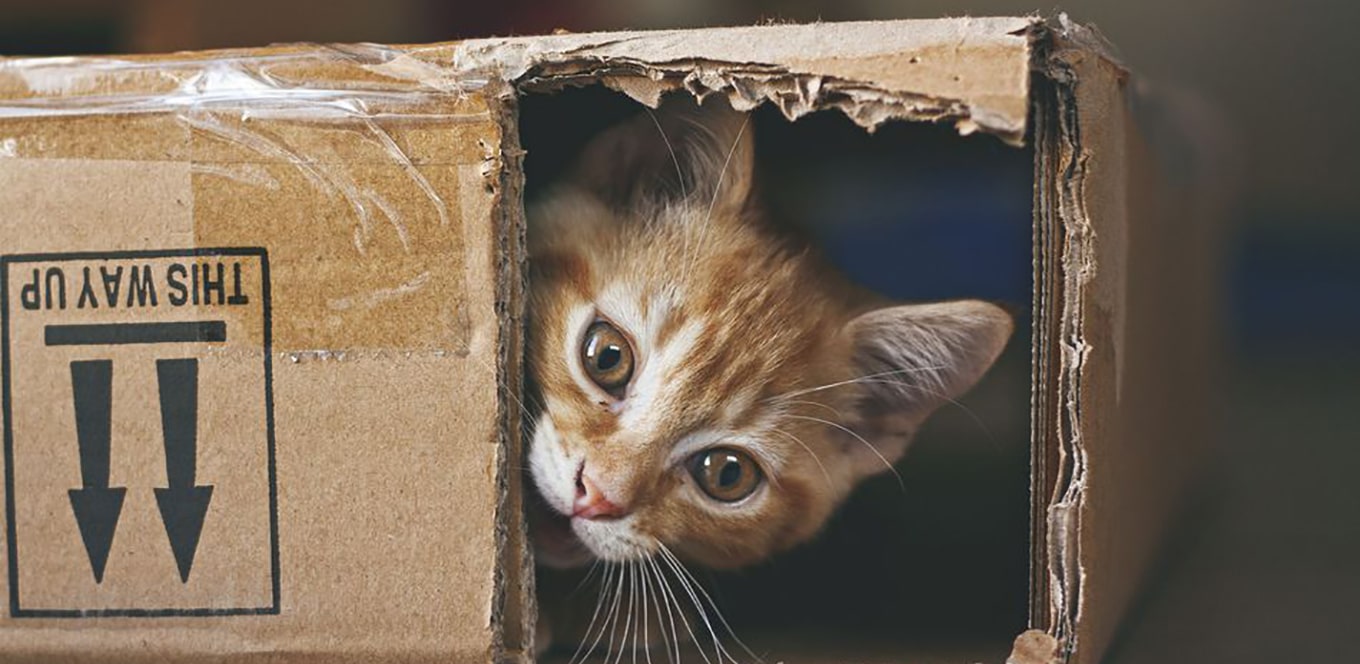

Good nutrition is as important to your cat as it is to you, but her nutritional needs are quite different! Unlike humans, a cat needs a high-fat diet with less fibre. Even if you prefer a vegetarian diet, you should understand that cats are carnivores. They need nutrients from animal protein and fat for optimal health, and they benefit from fibre for a healthy digestive tract and carbohydrates for energy.
With thousands of pet foods available, how do you pick the one that's right for your cat?
Start by identifying the cat's life stage and lifestyle. Kittens, nursing mothers, and mature/senior pets are examples of life stages, and each has different nutritional requirements. All cat foods should state which life stage they are recommended for.
Nutritional needs also vary depending on lifestyle. A cat whose primary activity is guarding the couch doesn't need as much energy as one who likes to spend time roaming outside.
Finally, it is important to take into account any special medical condition your cat may have, including food allergies that might require a special diet recommended by your veterinarian.
Once you've determined your cat's life stage and lifestyle needs, decide whether to feed dry or wet food. Most cats thrive on only dry food. This type of food promotes oral hygiene and health through abrasive action. Some cats, especially finicky eaters, enjoy the smooth and wet texture of canned or pouch foods.
Remember that, while dry food can be left in a bowl all day, wet food should be thrown away after 30 minutes if not eaten. Dry food is the best choice for busy people who are not normally home during the day.
Once you know your pet's nutritional needs and your pet's preference, you are ready to go shopping.
Because cats need the nutrients found in animal sources, it’s best to pick a food in which a primary ingredient (one of the first ones listed) is an animal-based protein source such as chicken, lamb, fish, egg, or one of their by-products. These ingredients contain all the essential amino acids, including taurine, which isn’t found in a vegetable-based protein source.
Using a combination of carbohydrates in a diet, such as corn meal or barley and grain sorghum, ensures efficient absorption and helps maintain energy levels. And beet pulp is an excellent fibre source that promotes a healthy digestive tract.
For a soft, thick coat and healthy skin, your pet needs fatty acids like those found in vitamin-rich fish oils and quality fat sources such as chicken.
Cat food labels provide limited information on the nutritional value of your pet's food because labeling regulations do not allow manufacturers to describe the quality of ingredients on the package. A reputable pet food manufacturer can explain to you how they evaluate and assure the quality of their products.
When choosing food, the price on the bag, while important, is usually not the best consideration. A low price may indicate cheap ingredients, or ingredients that change as manufacturer costs fluctuate.
In addition, many lower-priced products have higher daily portions to provide the same amount of nutrition found in a high-quality diet. To get a better idea of cost, it is the cost per feeding, not the total cost, that counts.
To figure cost per feeding, divide the total cost by the number of days the product lasts. For example, a 20-lb bag of food that costs $18.99 and lasts 30 days is $0.63 per day. A 20-lb bag that costs $15.99 and lasts 20 days costs $0.80 per day. When compared closely, high-quality pet foods are quite favourable to other brands.


Understanding and learning how to decipher kitten food product codes will help you choose the right kitten food. While selecting the right ingredients is important, making sure those ingredients are fresh is just as vital to your young cat. Learn how to read the product codes of kitten food packages and cans with our handy guide.
A product code is a series of numbers and letters printed on the outer package of each product a manufacturer produces. This code provides information about when and where the kitten food was made.
As part of the product code, IAMS™ products include a “Best Used By” date, or the date at which the product is no longer considered fresh and should no longer be sold. This date is expressed in “ddmmyy” and “ddmmmyy” formats.
The second line of the product code represents company internal information for use in traceability and inventory control.
Line 1: (ddmmyy) (ddmmmyy)
Example: 040220 04FEB20
Line 2: 60351111## QQQQQQQ
This product should be used before February 4, 2020.
Depending on the production line, pouch products* may have code date information in a single or double line. By recognizing and understanding these codes, customers can make sure they are receiving a fresh product.
Shelf life is the duration, measured in months, during which a properly stored kitten food product maintains its freshness. This means if a product has a 16-month shelf life, it is fresh for up to 16 months from the date of manufacture.
The shelf life for IAMS dry kitten foods is 16 months. All canned formulas have a shelf life of 24 months.
Unopened dry kitten food products are best stored off the floor in a cool, dry place. Open bags of kitten food should be stored in a clean, dry container with a tight seal. Dry kitten food products may also be frozen without loss of nutrients.
Opened wet kitten food products are best kept refrigerated in tightly sealed containers for no more than three days after the container has been opened. Wet products should not be frozen in unopened cans. However, wet kitten foods can be frozen if removed from the container, packed in freezer containers and frozen immediately.
*IAMS has no kitten pouch products at this time.
